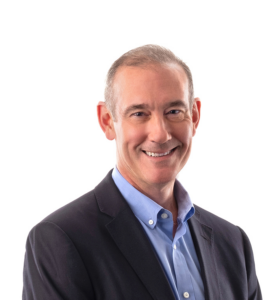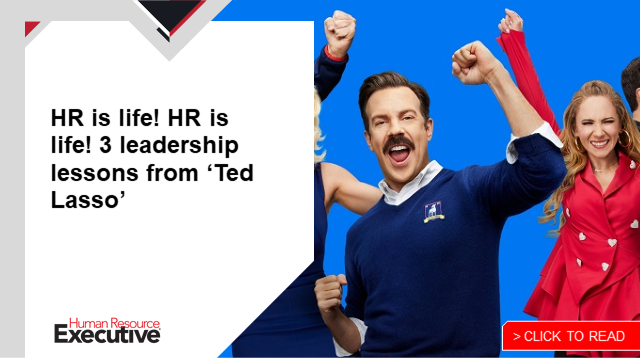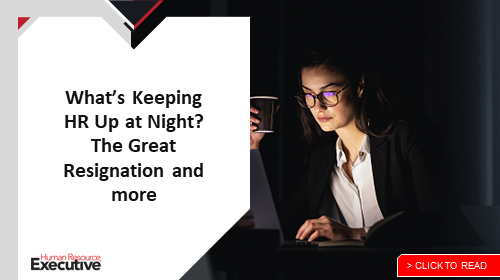By the time Patrick McLaughlin landed the top HR job in 2012 at Frito-Lay North America, a division of PepsiCo, there wasn’t much he didn’t know about the HR profession.
He joined PepsiCo in 1996, holding various jobs from manager of labor relations to head of HR at PepsiCo Beverages Company/Pepsi Beverage America to vice president of HR sales and supply chain. That last role included HR support for Frito-Lay North American plants, sales regions, sales operations and headquarters organizations. In his current role as senior vice president of HR and CHRO, McLaughlin oversees the HR needs of 70,000 employees throughout the U.S. and Canada.
HRE spoke with McLaughlin about his 26 years at PepsiCo and what skills are needed for HR leaders to be successful.
HRE: Over the years, you’ve held different jobs in two PepsiCo divisions. How did they prepare you for your current role?

McLaughlin: Because of the way I came up through the organization, I knew most of the issues. So having deep experience with the operating part of the business and in some cases, in multiple locations, gives you an understanding of the work to be done, the employees we hire, the culture that we have and especially everything about how the business works—where all of the issues come from. You take that broad perspective of the field and couple it with headquarters assignments working with more of the functional groups, and you get a very good end-to-end understanding of how the business operates, the challenges and strengths we have and how to best leverage those as an HR professional.
Related: How Chipotle’s CHRO drove ‘a transformation of people’
HRE: You mention that influencing and operating in the gray are two abilities that HR leaders need to be effective. Can you say more about that?
McLaughlin: [One], you have to learn how to influence people. We influence decisions without making a lot of those decisions. Influence skills have to start very early and are skills that you hone throughout your entire career. The other is the ability to operate in the gray. You need to sort through situations and consider and weigh all of the various viewpoints without having all of the facts.
 HRE: As CHRO, your biggest challenge is external sensing or picking up on trends. How so?
HRE: As CHRO, your biggest challenge is external sensing or picking up on trends. How so?
McLaughlin: It’s trying to anticipate what external factors are going to impact our business and creating systems and policies that are flexible enough to address those things. You’re not always going to get it right or pick up on every trend that’s coming.
HRE: Your company employs people in almost every zip code in the country. How do you manage their unique needs?
McLaughlin: I spend time visiting with employees, doing round tables, addressing employee concerns and issues. You get to observe and listen to what people are doing, saying and thinking about in every part of the country. So being willing to travel to your employees and sitting with them, you understand there are different concerns and nuances in the work and job itself.
HRE: What HR skills do you believe will continue to grow in importance?
McLaughlin: The need for digital, data and analytics, the ability to analyze data sets and operate within different digital frameworks and to find trends and identify issues. But you still can’t trade off some of the core, humanistic skills you need as an HR professional. You will always need to be a good listener, demonstrate empathy and influence others.
HRE: What types of behaviors do HR leaders need to exhibit or role model?
McLaughlin: That [they have] deep professional knowledge and are making good decisions. Demonstrate that you’re a full business partner who can go toe-to-toe with members of the executive committee and influence the executives that surround you. You need to be calm under pressure but fiery when you need to get people excited about something. Have a vision of where you want to take the function and articulate that vision succinctly in ways that help employees do their job. Employees want to see that you’re down-to-earth, a person who cares about them individually and in totality.
Related: Read more Insights from a CHRO
HRE: What’s next on your career agenda?
 McLaughlin: I’m not sure that I’m preparing myself for any position. I’m trying to make sure that we have modernized and digitized the HR function over the next few years, focusing on digital skills for HR professionals in order to create systems that can leverage the power that’s available today. I’d like to learn more about how other companies operate. There’s always a great opportunity to look outside to see what other folks are doing so you can find some innovation.
McLaughlin: I’m not sure that I’m preparing myself for any position. I’m trying to make sure that we have modernized and digitized the HR function over the next few years, focusing on digital skills for HR professionals in order to create systems that can leverage the power that’s available today. I’d like to learn more about how other companies operate. There’s always a great opportunity to look outside to see what other folks are doing so you can find some innovation.
HRE: How do you relax? How do you get creative or inspired?
McLaughlin: I try to find time in the day to take a 30-minute walk, which is a great time to clear my head and think about the issues of the day. I’m also a pretty good cook and like watching golf, professional and college football, and college basketball. I try not to take myself too seriously. The first rule I have is that I just have the privilege of having an elevated position.

